Why Starting a Home Health Care Agency is a Game-Changer (And How Medicare Can Help You Succeed)
Team Carepolicy.usThe home health care industry is growing rapidly. With an aging population, increasing healthcare costs, and a shift toward personalized, in-home medical care, there has never been a better time to start a home health care agency. But if you want to maximize your earnings and serve more people, becoming a Medicare-certified provider is essential.
If you’re wondering how Medicare fits into this equation and how it can be a powerful funding source, this guide will break it all down for you in a clear and practical way.
Why Start a Home Health Care Agency?
Millions of seniors across the United States prefer to remain in their homes rather than move into nursing facilities. However, many need medical assistance to do so safely. This is where home health agencies play a critical role.
- Demand is increasing – By 2030, one in five Americans will be 65 or older, and most prefer to receive care at home.
- It is a rewarding career – A home health agency allows you to build a business while directly improving lives.
- Financial opportunities – The home health industry generates billions in revenue annually, and Medicare reimbursements help create a stable, sustainable business model.
How Medicare Can Boost Your Home Health Business
Medicare is the largest payer of home health services in the United States. If your agency is not Medicare-certified, you are missing out on a steady and reliable revenue stream.
What Home Health Services Does Medicare Cover?
Medicare Part A and Part B cover medically necessary home health services, including:
- Skilled nursing care, such as wound care and injections
- Physical therapy for rehabilitation and mobility support
- Speech-language therapy for communication and swallowing issues
- Occupational therapy for assistance with daily activities
- Medical social services
- Limited home health aide services when tied to medical care
What Medicare Does Not Cover:
- 24-hour at-home care
- Non-medical caregiving services such as housekeeping, dressing, and bathing unless medically necessary
- Long-term custodial care
How Medicare Pays Home Health Agencies
The most significant advantage of Medicare certification is predictable and recurring payments. Medicare reimburses home health agencies based on patient conditions and care needs using the Patient-Driven Groupings Model (PDGM).
Medicare’s 30-Day Payment Model (PDGM)
- Home health agencies receive a national standardized payment rate of approximately $2,010 per patient per 30-day period (adjusted for case mix and location).
- If a patient requires fewer than four visits, Medicare reimburses per visit rather than a full payment period.
Low-Utilization Payment Adjustments (LUPA)
- If a patient requires less than four visits in a 30-day period, the agency is paid per visit.
- Examples of per-visit reimbursement rates:
- Skilled Nursing: ~$150 per visit
- Physical Therapy: ~$160 per visit
- Home Health Aide: ~$70 per visit
Outlier Payments for High-Cost Cases
- Medicare provides additional reimbursements for patients requiring intensive care.
Home Health Value-Based Purchasing (HHVBP) Model
- Agencies providing high-quality care may receive higher reimbursement rates.
Potential Revenue for a Medicare-Certified Home Health Agency:
- 100 Medicare patients per month = $201,000 in revenue
- 1,200 Medicare patients per year = $2.41 million in revenue
Steps to Get Medicare Certification for Your Home Health Agency
1. Obtain a State Home Health License
- Licensing requirements vary by state, and some states require a Certificate of Need (CON).
2. Enroll in Medicare
- Register with the Centers for Medicare & Medicaid Services (CMS) through PECOS.
- Pay the $730 application fee (2025 rate).
3. Pass the Medicare Survey & Accreditation
- Your agency must pass a CMS survey or receive accreditation from ACHC, CHAP, or The Joint Commission.
- This ensures compliance with Medicare’s Conditions of Participation (CoPs).
4. Start Serving Medicare Patients & Submitting Claims
- Once approved, your agency can begin treating Medicare beneficiaries and submitting claims for reimbursement.
Challenges of Medicare Certification (And How to Overcome Them)
Regulatory Compliance
- Medicare has strict rules and audits agencies regularly.
- Solution: Develop detailed policies and procedures to ensure compliance.
Delayed Reimbursements
- Medicare claims can take weeks or months to process.
- Solution: Maintain accurate documentation and billing records to avoid delays.
Billing Complexity
- PDGM-based billing requires specialized knowledge.
- Solution: Hire an experienced billing team or use specialized home health billing software.
Audits and Compliance Monitoring
- Medicare audits agencies to prevent fraud and ensure quality care.
- Solution: Stay informed about CMS regulations and maintain thorough patient records.
Why Medicare Certification is a Game-Changer for Your Agency
Becoming a Medicare-certified home health provider is about more than just increasing revenue—it ensures long-term success, credibility, and access to a vast patient base.
- Medicare covers 40 to 50 percent of all home health payments in the United States.
- Agencies can earn more than $2,000 per patient every 30 days.
- Medicare beneficiaries represent the largest group of home health users.
- Medicare-certified agencies have greater trust and credibility in the healthcare industry.
If you are serious about building a successful home health care business, obtaining Medicare certification can take your agency to the next level while providing essential healthcare services to those who need it most.
With expert consultation and end-to-end state licensing guidance, we simplify the process and set you up for success. Book a consultation now!
